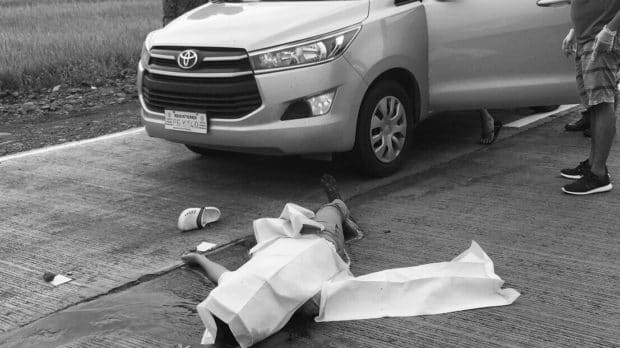
MANILA, Philippines—September, through Proclamation No. 713 signed and issued in 2004 by then-President Gloria Macapagal Arroyo, was declared as Rule of Law Month.
Rule of law, as defined by the United Nations (UN) system, pertains to a principle in governance where all persons, institutions, entities, public and private, including the State itself, “are accountable to laws that are publicly promulgated, equally enforced and independently adjudicated, and which are consistent with international human rights norms and standards.”
“The rule of law is fundamental to international peace and security and political stability; to achieve economic and social progress and development; and to protect people’s rights and fundamental freedoms,” said the UN.
“It is foundational to people’s access to public services, curbing corruption, restraining the abuse of power, and to establishing the social contract between people and the state,” it added.
It also allows the enjoyment of rights and freedoms in an orderly environment.
Arroyo’s proclamation required the government to be responsible in promoting awareness and respect for rule of law.
But the celebration of Rule of Law Month may take a different twist under the Duterte administration, which has been accused of human rights violations in the course of its campaign against drugs and crime even at the height of the pandemic.
More abuses
A report recently released by the group Investigate PH found that violations of economic, social, and cultural rights, the right to development, self-determination, and peace have become more apparent amid the COVID-19 pandemic.
According to the independent human rights group, cases of human rights violation in the country have increased since the release of the June 2020 report of the UN Office of the High Commissioner on Human Rights (OHCHR).
“Human rights violations have worsened during the COVID-19 pandemic,” Investigate PH said in its third report.
“Police killings of civilians during anti-drug operations have spiked during COVID-19. As of August 2020, such killings rose 50 to 76 percent per month on average, compared to the months preceding lockdown,” the group added.
Data from the government, Philippine National Police (PNP), and Philippine Drug Enforcement Agency (PDEA), said there were at least 5,903 persons slain during anti-drug operations from July 1, 2016 to Sept. 30, 2020.
However, UN OHCHR said it believed that the numbers could be higher, or around 8,663, including killings by so-called non-state actors, or vigilantes.
In July, Investigate PH said the PNP has been covering up the circumstances of the killings during anti-drug operations, intimidating the families of victims and potential witnesses, and obstructing the review of most killings by the Department of Justice (DOJ).
“While the police claim that those killed in anti-drug operations were resisting—known as the ‘nanlaban’ (fought back) narrative— evidence indicates that unarmed victims have been executed either in their home, on the street or after being abducted, with weapons or drugs likely planted after,” the group said in its second report.
“Those killed in anti-drug operations are overwhelmingly poor people unable to assert their rights to due process,” it added.
A practice known as red-tagging, or branding someone or a group as communist rebel or supporter, has also become common during the Duterte administration, especially with the rise of the National Task Force to End Local Communist Armed Conflict (NTF-Elcac) which was created by a Duterte executive order.
“This practice is a form of state terror, perpetrated by state agents and their proxies as part of the government’s strategy to repress dissent,” Investigate PH said.
“Disregarding evidence or due process, the simple act of ‘red-tagging’ someone—even on social media—can lead to and institutionally legitimize government surveillance, threats, harassment, intimidation, trumped up arrests, and even the killing of those red-tagged,” the group said.
Slain lawyers
Attacks on lawyers, paralegals, and human rights workers have also increased under the Duterte administration, according to the National Union of People’s Lawyers (NUPL).
In a report released last April, NUPL found that more lawyers have been killed under the current administration—at least 54 so far—than previous ones.
During the late President Benigno Aquino III’s term, NUPL said 21 lawyers were slain, while 45 were killed during former President Gloria Macapagal-Arroyo’s term.
Under ex-President Joseph Estrada’s short-lived term, only one lawyer was documented to be fatally attacked.
From 2011 to April 2021, the lawyers’ group has recorded a total of 176 attacks and 73 deaths.
Integrated Bar of the Philippines (IBP) in July said the number of slain lawyers rose by 500 percent since the start of President Rodrigo Duterte’s term in 2016.
In a statement expressing alarm over attacks on lawyers, IBP said the government must enforce measures “to improve the security of lawyers, judges and prosecutors” and resolve with urgency the cases of killing of lawyers to hold perpetrators accountable.
Just last August, veteran lawyer Rex Jose Mario Fernandez—who was a founding member of NUPL in 2007 and part of human rights group Karapatan—was shot and killed by an unidentified assailant in Cebu City.
The killing prompted NUPL to describe the country’s lawyers as “sitting ducks” for harassment, violence and assassinations.
“No words, indeed. Another colleague has fallen with his boots on. We had lost count. It has not stopped and every lawyer is a sitting duck,” said NUPL president Edre Olalia in a statement.
RELATED STORIES: